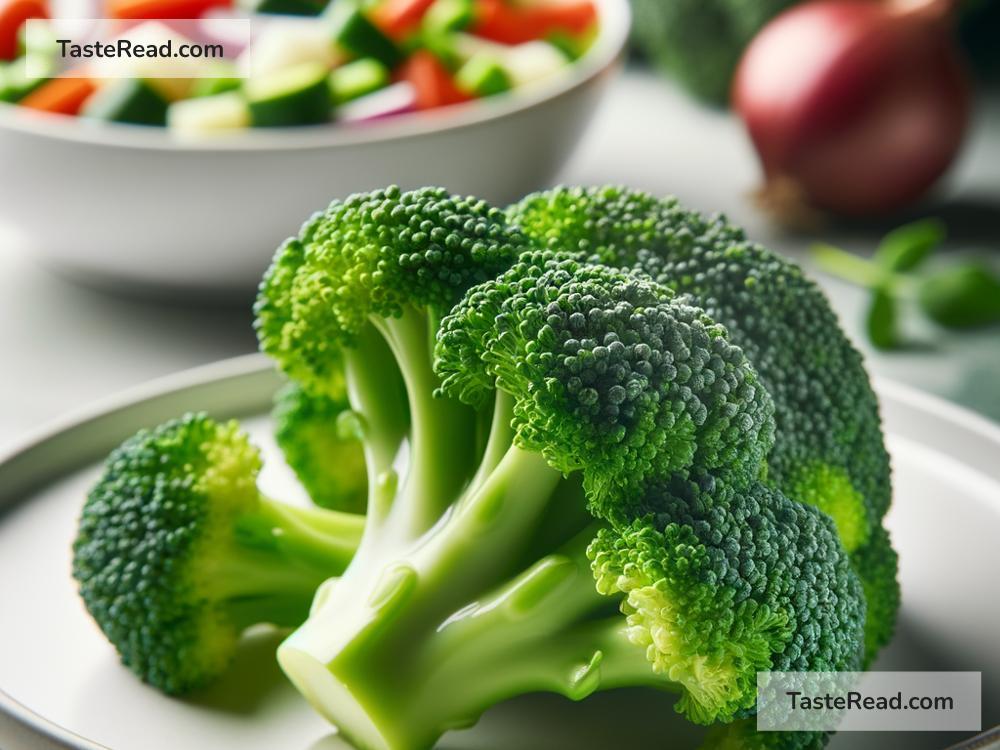The Surprising Link Between Broccoli and Cancer Prevention
When most people think of broccoli, they picture a green vegetable that their parents insisted they eat at dinner. It’s often seen as one of the healthiest vegetables, but many people don’t know about broccoli’s incredible ability to help protect against cancer. While it might seem surprising that something as simple as broccoli could play a role in fighting such a serious disease, science is uncovering amazing truths about this humble vegetable. Let’s take a closer look at how broccoli can help prevent cancer, and why you might want to make it a regular part of your diet.
The Power of Broccoli: Sulforaphane
The star compound in broccoli’s cancer-fighting story is a substance called sulforaphane. Sulforaphane is a natural chemical found in broccoli and other cruciferous vegetables, like kale, cabbage, and cauliflower. Scientists have spent years studying this compound, and the results are impressive.
Sulforaphane has powerful effects on the body. It boosts the body’s natural ability to detoxify harmful substances, reduces inflammation, and protects cells from damage. But what makes it extra special is its ability to target cancer cells. Research has shown that sulforaphane can block the growth of cancer cells while leaving healthy cells unharmed. This means it could reduce the risk of cancer or even slow the progression of the disease.
How Does Sulforaphane Work?
To understand why broccoli could help prevent cancer, it’s important to know how cancer starts. In simple terms, cancer happens when healthy cells grow out of control and form tumors. This process can happen for various reasons, like exposure to toxins, unhealthy habits, or even genetics. However, sulforaphane helps stop some of the key steps in cancer development.
One way sulforaphane helps is by turning on “defense systems” in the body. These systems help neutralize toxins and stop them from damaging DNA, which is what can lead to cancer. Sulforaphane is also known to help reduce oxidative stress—essentially protecting cells from unnecessary wear and tear that can make them vulnerable to disease.
Another amazing feature of sulforaphane is its ability to disrupt the processes that encourage cancer cells to grow and spread. Scientists believe this makes it especially useful in preventing certain types of cancers, including breast, prostate, colon, and lung cancers.
Broccoli is More Than Just Sulforaphane
Sulforaphane isn’t the only weapon in broccoli’s arsenal. This vegetable is packed with other nutrients and compounds that benefit your body and may help reduce cancer risk. For example:
- Fiber: Broccoli is rich in fiber, which keeps your digestive system healthy. A healthy digestive system is better at removing waste and harmful substances from the body, which can lower the risk of colon cancer.
- Vitamins and Antioxidants: Broccoli contains vitamins C, E, and A, along with other antioxidants. These nutrients help keep your immune system strong and protect your cells from damage.
- Folate: Folate is a B vitamin found in broccoli that helps repair DNA and build new healthy cells, which is crucial for cancer prevention.
All of these elements work together to make broccoli one of the healthiest foods you can eat.
Can Broccoli Alone Prevent Cancer?
It’s important to note that broccoli is not a magical cure for cancer. Cancer is a complex disease, and no single food can completely prevent or treat it. However, scientists are convinced that eating broccoli regularly, along with other healthy foods, can lower your risk and improve your overall health.
The key is balance. A diet full of fresh fruits, vegetables, whole grains, and lean proteins, plus regular exercise and avoiding harmful habits like smoking, can create a strong foundation for cancer prevention. Broccoli is just one piece of the puzzle, but it’s a very powerful piece!
How Should You Eat Broccoli?
To get the most cancer-fighting benefits from broccoli, it’s helpful to know how to prepare it properly. Sulforaphane is formed when you chop or chew broccoli, so cutting it into smaller pieces before cooking is a good idea. However, cooking can destroy some of the beneficial compounds, so steaming broccoli lightly is the best option to preserve its nutrients.
If you really want to maximize the sulforaphane content, try adding raw broccoli to your salads or dipping it in hummus for a healthy snack. Broccoli sprouts are also a fantastic option, as they contain much higher concentrations of sulforaphane than mature broccoli.
The Bottom Line: Small Changes Add Up
Cancer is a scary word, and prevention can feel overwhelming at times. But the connection between broccoli and cancer prevention is a reminder that small, simple changes in your diet can make a big difference. Adding broccoli to your meals, experimenting with new recipes, and making an effort to eat more vegetables is an easy way to prioritize your health.
So, the next time you’re at the grocery store or planning your meals, don’t overlook broccoli! This green vegetable may not seem exciting, but its ability to help fight cancer is nothing short of incredible. By putting broccoli on your plate, you’re giving your body a powerful ally in the fight against disease. Eat up, and enjoy the benefits of this surprising cancer-fighting superstar!

